Rating of the best 32-inch TVs
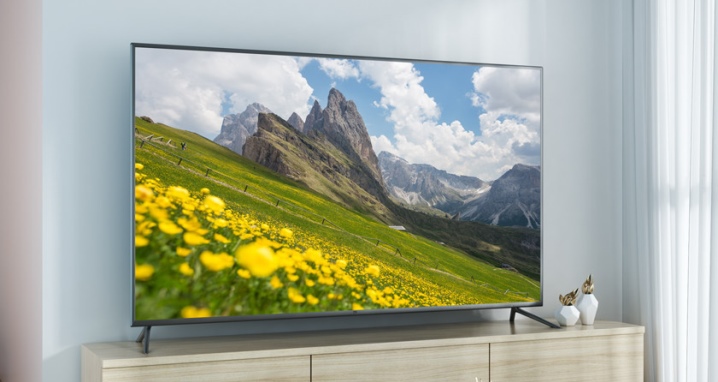
Knowing the ranking of the best 32-inch TVs makes it much easier to pick these attractive units. When reviewing, special attention will have to be paid to technical parameters and important practical properties. But you should also break down all possible supply into distinct sectors with specific price ranges.
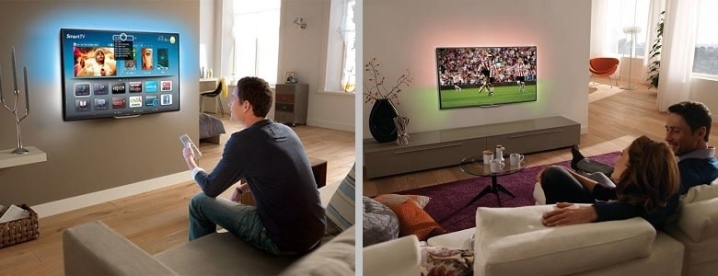
Characteristic
There are a number of reasons why buying a 32-inch TV is a worthwhile decision. Experts note:
- ease of viewing the image;
- the possibility of placing in a relatively modest room or even in the kitchen;
- decent screen resolution (which is clearly better than in smaller TV receivers);
- universal application (suitability as a monitor for video games, for fixing gears);
- availability of Smart TV mode in most current models;
- an abundance of user modes;
- variety of available interfaces.
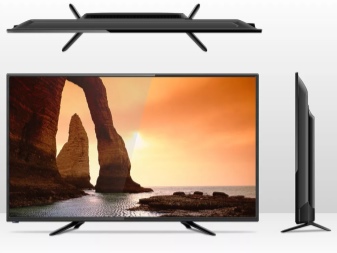
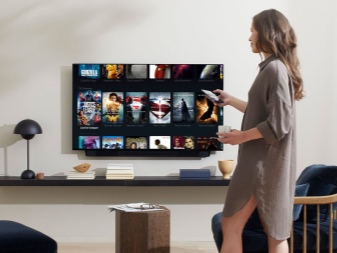
Top popular brands
Sony TVs are traditionally very popular. They are more expensive than many similar models (this is a surcharge for a big name). But the increased costs are justified - Sony equipment works stably and also has an attractive design. Even in relatively budget models, the viewing angles are great, the risk of glare is minimized.
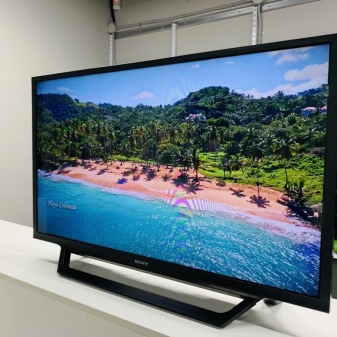
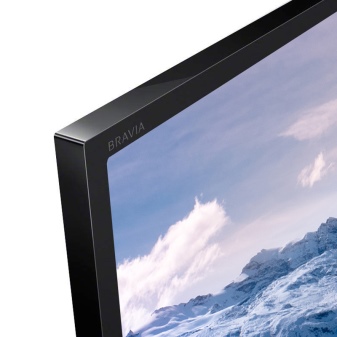
Brand name Lg has another important advantage - innovation. Suffice it to say that it was this company that first launched the production of TVs with OLED screens. There are a variety of models that differ in resolution. Energy consumption is relatively low. The image is rich in saturation and fine detail.
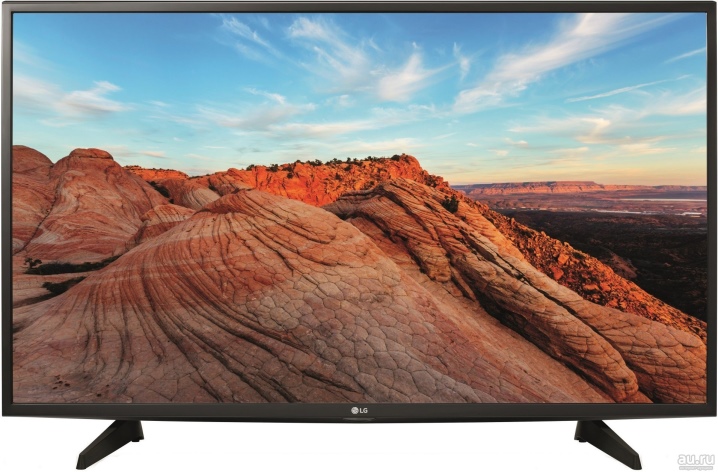
The products of the brand also deserve attention. Visio. These TVs are relatively inexpensive and have excellent flat screens. The technical merits of the models fully justify their price. Suffice it to say that Visio is the third most widely used device in the United States. And they have been holding this position for many years.
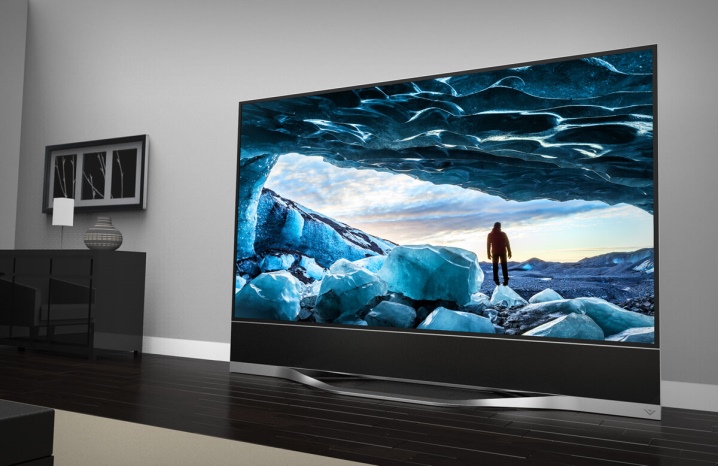
As for brands Akai, Hitachi, then this is quite a worthy second-tier technique. Despite the low cost and relatively low popularity, these TVs are distinguished by impressive functionality and are quite reliable. They can be compared with products of the same value of world brands. Thanks to a wide variety of modifications, you can choose the version that suits you best. But it is important to analyze not only the brands themselves, but also specific models.
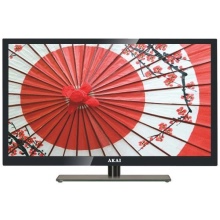
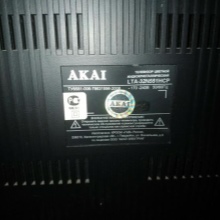
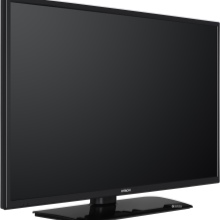
Model overview
Budget
The best way to start the rating is with the best inexpensive TVs. A striking example of this is SAMSUNG T32E310EX FULL HD. The screen resolution reaches 1080p. The luminescence intensity of the surface is 300 cd per sq. m. The device can receive a signal using tuners DVB-T2, DVB-C.
Other features:
- classic black;
- mount according to the VESA 200x200 standard;
- diagonal of the TV 31.5 inches;
- response time of 1 point 5 ms;
- viewing angles 178 degrees on both planes;
- CI + interface;
- television interfaces PAL, NTSC, SECAM;
- built-in speakers 2x10 W;
- Dolby Digital, Dolby Pulse decoders;
- sleep timer;
- 2 HDMI connectors;
- the ability to connect a USB flash drive via the USB port.
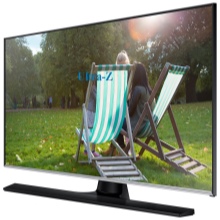
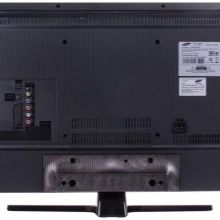
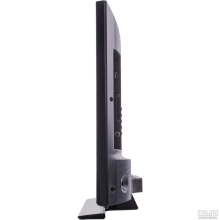
The antenna is connected via the IEC75 input. There is an optical S / PDIF connector. The current consumption in standard mode is 69 W. Weight excluding stand is 4.79 kg. The acoustic complex allows you to connect multichannel signal sources.
Alternatively, consider TV Akai LEA 32X91M. The resolution of the liquid crystal screen is 1366x768 pixels.The constructors took care of the TimeShift mode. HDTV mode supported. Other features:
- tuner DVB-T2;
- 2 HDMI inputs;
- height with stand 0.49 m;
- the ability to record video to USB drives;
- net weight 4.2 kg;
- optional wall mount.
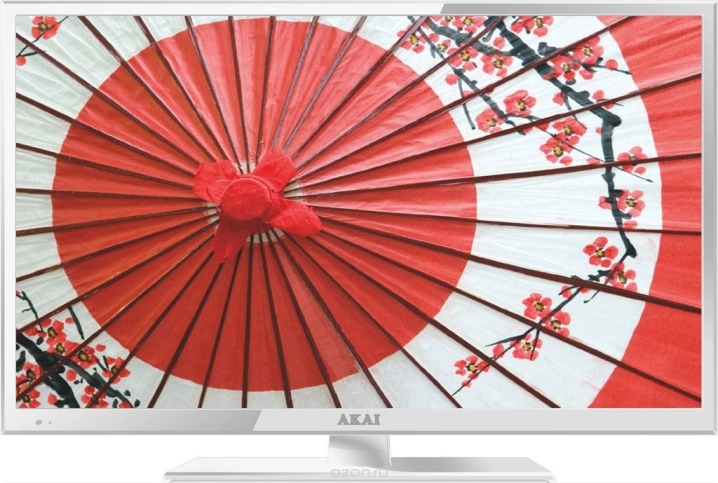
Middle price category
This group includes, for example, Sony KDL-32RE303. The screen resolution is fully HD Ready. The designers have taken care of the Russian-language teletext. The image changes at a speed of 100 Hz. A PAL / SECAM analog tuner is provided. Other features:
- digital receivers of DVB-T / DVB-T2 / DVB-C standards;
- the ability to play video from USB;
- acoustic power of the front built-in speakers 2x5 W;
- playback of files of standards MPEG4, DivX, JPEG;
- built-in clock;
- sleep timer;
- 2 HDMI inputs;
- current consumption 39 W.
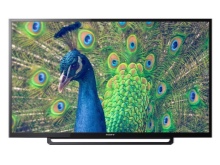
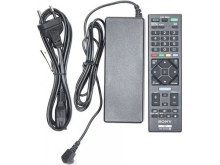
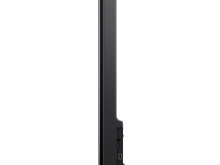
Another suitable model is LG 32LK6190. The device entered the market at the end of 2018. The screen resolution is 1920 x 1080 pixels. The frame rate is hardware supported at 50 Hz. At the same time, it is “stretched” by software up to 100 Hz. Progressive scan is supported, and smart components work more efficiently due to the special LG webOS.
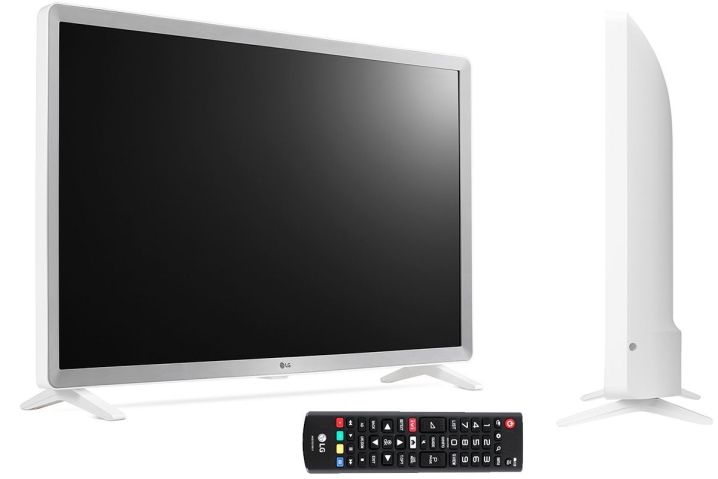
Another attractive version is Philips 32PHS5813. The screen resolution is slightly weaker - 1366x768 pixels. However, the manufacturer emphasizes that this disadvantage is overcome by an improved processor. But much more serious is that the intellectual component is built on the basis of the proprietary Saphi TV OS.
It is quite stable, but it cannot boast of a variety of options.
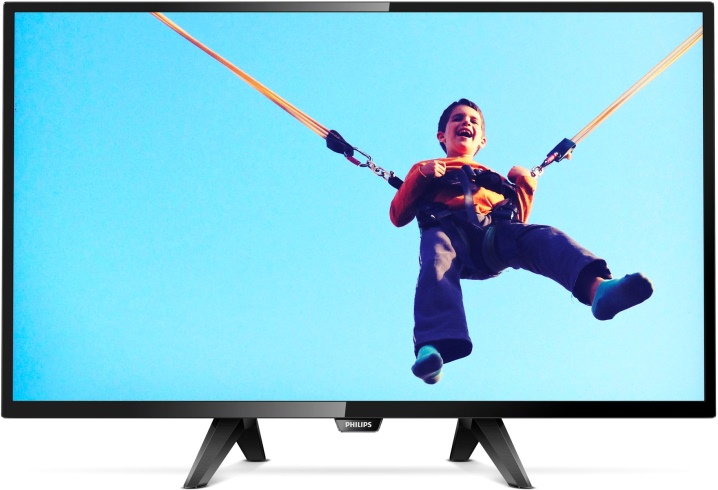
Premium class
A prominent representative of this group is Samsung UE32M5550AU. Despite the fact that this model can hardly be called a novelty, it still turns out to be very popular. Management is possible with the help of a voice. But even more traditionally minded people will be happy - they will be offered to use an ergonomic remote control. It's easy and simple to use. Other technical features are as follows:
- Ultra Clean technology, which provides an excellent image without distortion;
- three-dimensional picture with increased sharpness and contrast;
- perfect clarity of both the darkest and lightest points;
- maximum naturalness of all displayed colors;
- extra thin body;
- thoughtful Remote Control option;
- increased clarity of motion transmission;
- especially subtle, verified display of contrasts;
- perfect DTS codec.
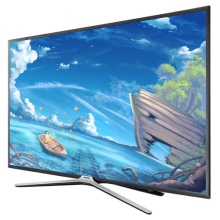
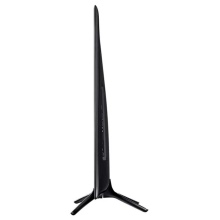
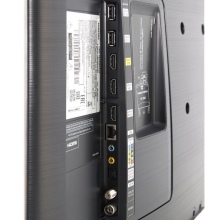
Another excellent model of an almost elite class - Sony KDL-32WD756. The resolution is still the same - at the level of 1920 x 1080 pixels. And the matrix is made according to the standard IPS methodology. However, how exactly this is done is respectful. The sound is loud enough, but it does not deafen and does not interfere with the perception of the picture.
It should be noted that even such a perfect device has a serious drawback - the Smart TV mode works quite slowly. But not for all people it is fundamental, since the excellent quality of the picture itself is often more important. The proprietary methodology for dimming areas of the screen, Frame Drimming, works very well. The Edge LED backlighting doesn't give rise to any noticeable complaints either. HDR graphics mode is not supported, however, there is a special "sport" mode with the most clear rendering of fast movements.
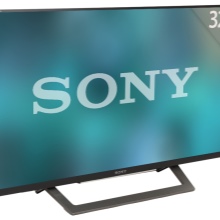
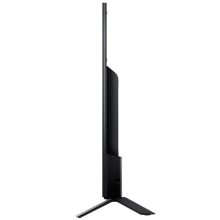
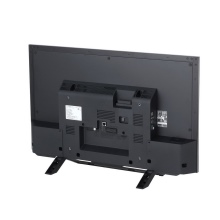
How to choose?
The most important thing to consider is that you do not have to be limited to those brands of TVs with a diagonal of 32 inches, which are shown in the review above. In general, modern manufacturers have set up the production of excellent receivers. And their quality practically does not depend on a specific brand. Almost everyone can see the difference between a picture of 1366x768 and 1920x1080 pixels. But for viewing news and educational programs, this does not play a special role.
Another thing is that when watching movies and using the TV as a monitor for a game console, this is very important.
Attention: if you only plan to watch TV programs, and even DVD playback is irrelevant, you can limit yourself to 800x600 pixels.But such models are found less and less.
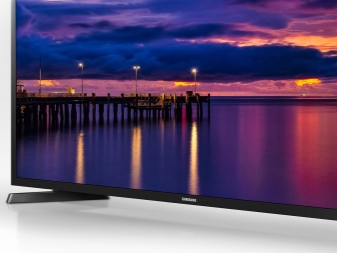
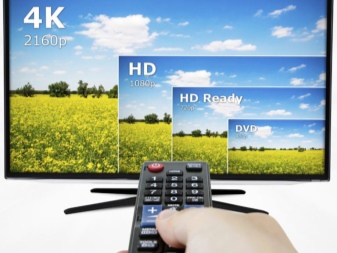
As for the screen brightness, use TVs with an indicator of less than 300 cd per 1 sq. m does not make sense. Only more advanced models can provide a comfortable viewing experience in any situation.
The viewing angle of 178 degrees is almost optimal. 180 degrees is an absolute ideal, but finding such devices, especially in the budget segment, is almost impossible. And if the angle is less than 168 degrees, then this is clearly an outdated technique that cannot be purchased. Even if they make a "very lucrative offer." Smart TV mode is useful because it allows you to watch movies and other programs without ads.
However, it should be borne in mind that not everywhere Smart TV works well enough, sometimes it simply switches slowly.
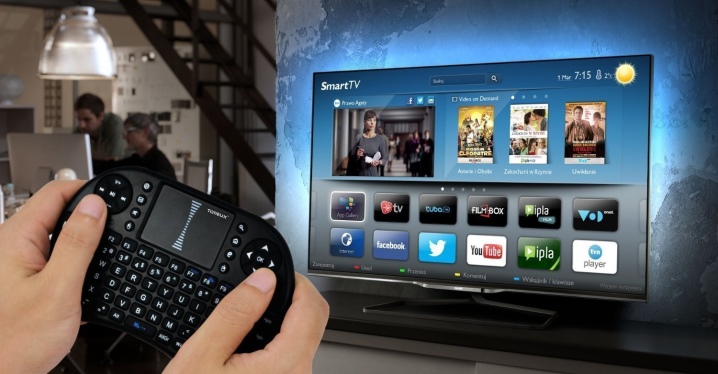
A very important and often underestimated parameter is the fastening system. Wall mounting is not possible everywhere. But if there is a wall that can withstand hanging the TV, then this will save space in the room. The Ultra HD picture certainly looks attractive. There is only one problem - there are still few sources of images of this quality.
In our country, it is mainly offered by satellite operators. Also, sometimes there is a similar video on the Internet and on cable channels. Therefore, planning to change the TV in 4-5 years, you can limit yourself to the Full HD format. But those who want to achieve uncompromising quality or want to keep today's TV for a longer time should give preference to 4K.
Regardless of the resolution, HDR TVs perform better.
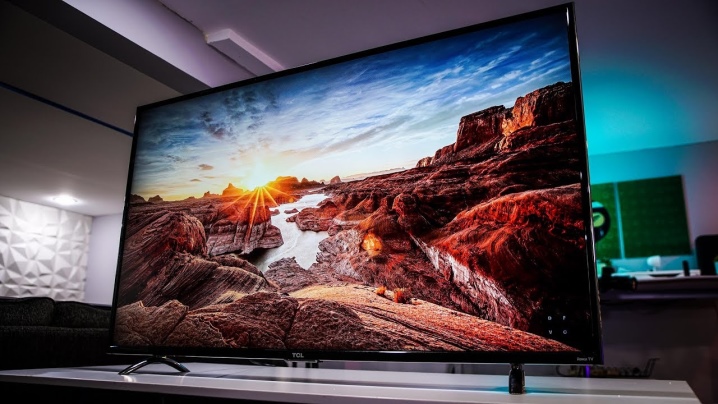
The difference is especially great where color brightness and overall contrast come first. It is not for nothing that manufacturers often refer to screens with this image as Ultra HD Premium. As for the sweep frequency, there can be no two opinions - the higher it is, the better. You just need to find out whether it is "real" frame rate or "pulled up" by software. For your information: 100 Hz is the standard for true connoisseurs. Lovers of uncompromising quality should target 120Hz. But if you plan to only occasionally watch news releases, weather forecasts and use teletext, then you can limit yourself to 50 Hz.
The next important aspect is the speaker system. Certainly, one should not count on miracles of sound performance, on perfection of acoustics. However, taking a TV that is not capable of producing 2x10 W sound makes sense only for a utility room, kitchen or summer cottage. The number of connectors is selected individually. But experts say unequivocally - the more, the better.
As for curved displays, there is no need to buy them. This is just one of the marketing gimmicks that doesn't bring the slightest benefit to consumers. The rest of the TV can be chosen purely by design.
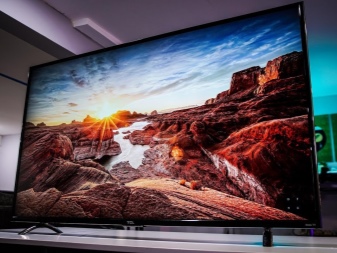
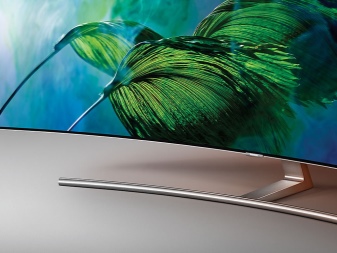
TOP TVs with a diagonal of 32 inches, see below.













The comment was sent successfully.